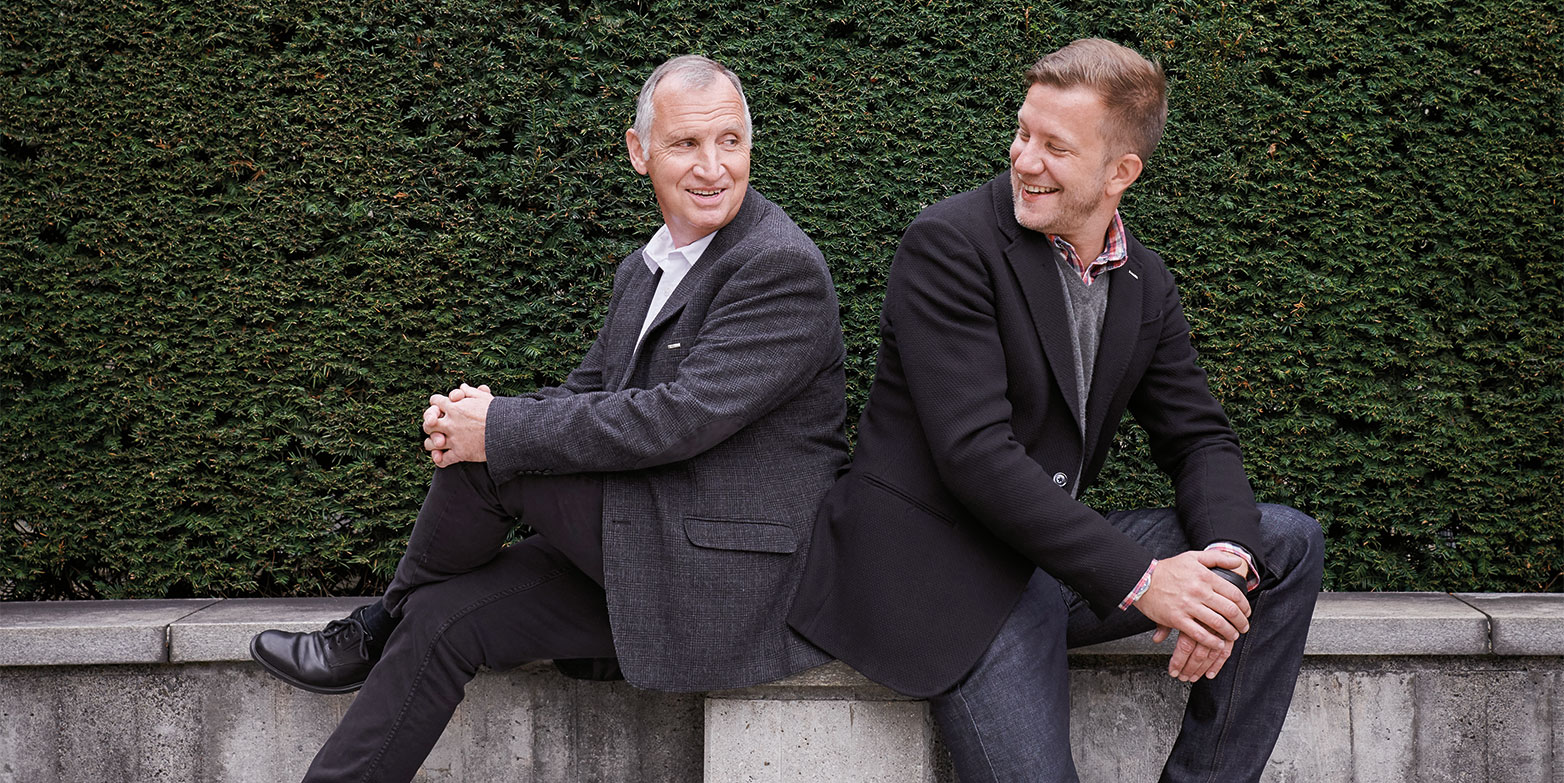"Don’t complain, communicate!"
As President of the Staff Commission (PeKo), André Blanchard focused on dialogue and achieved good results for employees. What strategies will his successor Christopher Sauder be pursuing and what are his aims?

André Blanchard, you spent over 11 years as PeKo President. Did it ever bother you that the Staff Commission’s work is hardly ever noticed within ETH?
AB: I don’t see it like that! We articulate the concerns of ETH staff clearly. But we solve problems through direct communication with those responsible on the Executive Board and the ETH Board. The PeKo has achieved good results over the last few years with this method. If we saw ourselves as a trade union and sought confrontation, that would definitely not have been possible. My experience is that even when there was controversy, as in the case of restructuring measures, the sticking point was not so much the content, but the way it was communicated. In such cases, PeKo was often able to mediate and convey information both "upwards" and "downwards".
Christopher Sauder, you recently became PeKo President. Is "communicating instead of complaining" your motto as well?
CS: Yes it is! I think PeKo should continue to be a partner to both the employees and the Executive Board. André is a role model for me, because he embodies the ETH spirit perfectly. He stands for a spirit of dialogue, respect and openness to constructive criticism. I see the PeKo as a communication channel that promotes discussion and understanding between ETH management and employees based on these values. At the same time, however, we have to make sure we do not end up becoming a pawn for individual interests.
André Blanchard, which of the improvements that you brought about as PeKo President are you most proud of?
AB: We made sure that the appreciation of technical and administrative staff was not just a topic for discussion – it actually resulted in concrete measures. The staff party, for example, is now a firm fixture in the ETH calendar. The "Sabbatical for Staff" initiative was also put into practice. Furthermore, thanks to our efforts, appraisal interviews and job references are now mandatory. And we also successfully campaigned to turn more and more temporary posts for infrastructure staff into permanent positions.
Were there failures along the way?
AB: Actually there weren’t. Although sometimes we didn’t make progress as quickly as we would have liked; for example, regarding the support of internal job changes. We think that applications from within ETH should be granted a slight advantage in terms of time.
In the last few months there have been allegations regarding isolated cases of abuse of power in employee management, particularly in relation to doctoral supervision. How does the PeKo see its role in this matter?
AB: We are a possible first point of contact. When technical and administrative staff are involved, we listen, advise and pass on reports to the relevant offices if desired. Incidentally, the fact that members of the administrative and technical staff can now be given the role of ombudsperson as well as professors is also down to the PeKo.
CS: Unfortunately, malpractice and abuse can happen anywhere. Professors need autonomy – it is crucial to their success. But it goes without saying that ethical principles apply to everyone. If we are now looking to develop measures to improve the management culture here, it is important for ETH that undergraduates, postgraduates, technical and administrative staff and professors work together to come up with solutions.
Mr Sauder, what would you like to achieve on behalf of the technical and administrative staff in your role as "most senior ETH employee"?
CS: One key aim is to remove the sometimes considerable obstacles that stand in the way of staff development. André mentioned making it easier to change jobs internally; the concept of the specialist career is another important point. In ten years, internal job changes should be a matter of course. They are an asset for employees and an opportunity for ETH to exploit the considerable potential of its staff even more effectively.
Mr Blanchard, what three tips would you give your successor?
AB: Don’t take anything personally in this role. Be patient; at ETH you often have to play the long game. And once you have set yourself a goal, stick with it: it will pay off in the end!
About the interviewees
André Blanchard is a technical employee in the Institute of Geophysics and in the Swiss Seismological Service (SED). He joined ETH as an apprentice 42 years ago. He was President of the Staff Commission (PeKo) from 2007 to 2018.
Christopher Sauder Engeler has been at ETH since 2001. He is responsible for video conferencing in Multimedia Services. He has been PeKo President since summer 2018.
